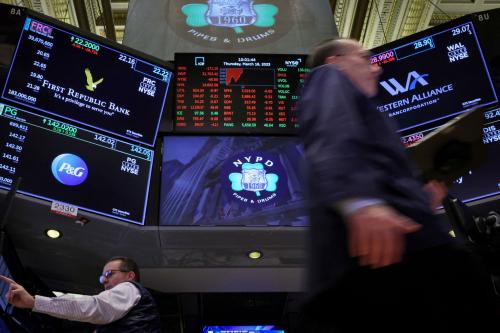That Russia finally has been admitted to the World Trade Organization is good for the world, both for the global system as a whole and for the current members. The WTO represents an open, rules-based global trading system. The more countries who are in, the better. Some foreign companies that have had difficulties entering the Russian market will benefit immediately as barriers to their access are lowered or removed.
How good WTO membership turns out to be for Russia itself is less clear-cut. Russia doesn’t have much to gain in terms of better access to foreign markets, because few of its exports other than commodities are very competitive. The key point is that the main “good” that the WTO will bring to Russia is in the longer term, and it will happen by causing pain in the shorter term. Russian companies will be more exposed to direct competition from their foreign counterparts. The idea is that this pressure will in turn force Russian companies to become more competitive. That will lead to growth in the economy, higher living standards, more jobs. That’s what’s supposed to happen — in theory. But reality doesn’t have to follow that track. The immediate negative consequences — reduced sales, lost jobs — may be so severe as to be intolerable. The real question is whether Russia really will change in order to conform to the WTO rules, or whether it will bend or evade the rules.
Russia has a remarkable ability to resist both carrots and sticks that seem to work everywhere else. International bodies with seemingly powerful enforcement mechanisms (e.g., the IMF in the 1990s) have been convinced that they could force Russia to change, but without success.
The good news is that the harsh effects of WTO regulations will not affect Russia all at once. Many of the serious requirements will be phased in over the course of a few years. Even so, it should not take long before some foreign country puts Russia on the receiving end of accusations of violating some WTO rule or other. At that point, a different kind of competitiveness comes into play – expertise in the area of international trade law. Russia is at a decided disadvantage here, because it is so inexperienced.
For Russia, joining the WTO is like a football club, or ice hockey team, that moves up to a higher division. It will now have to play against opponents that are bigger, stronger, more skilled. Rarely does a team that makes such a move win many games in the beginning. It will be tough. It’s taken Russia 18 years to gain entry to the WTO. Finally gaining admission is not the end of the story. The real game has just begun.



Commentary
Russia and the World Trade Organization: Not the End but the Beginning
December 16, 2011